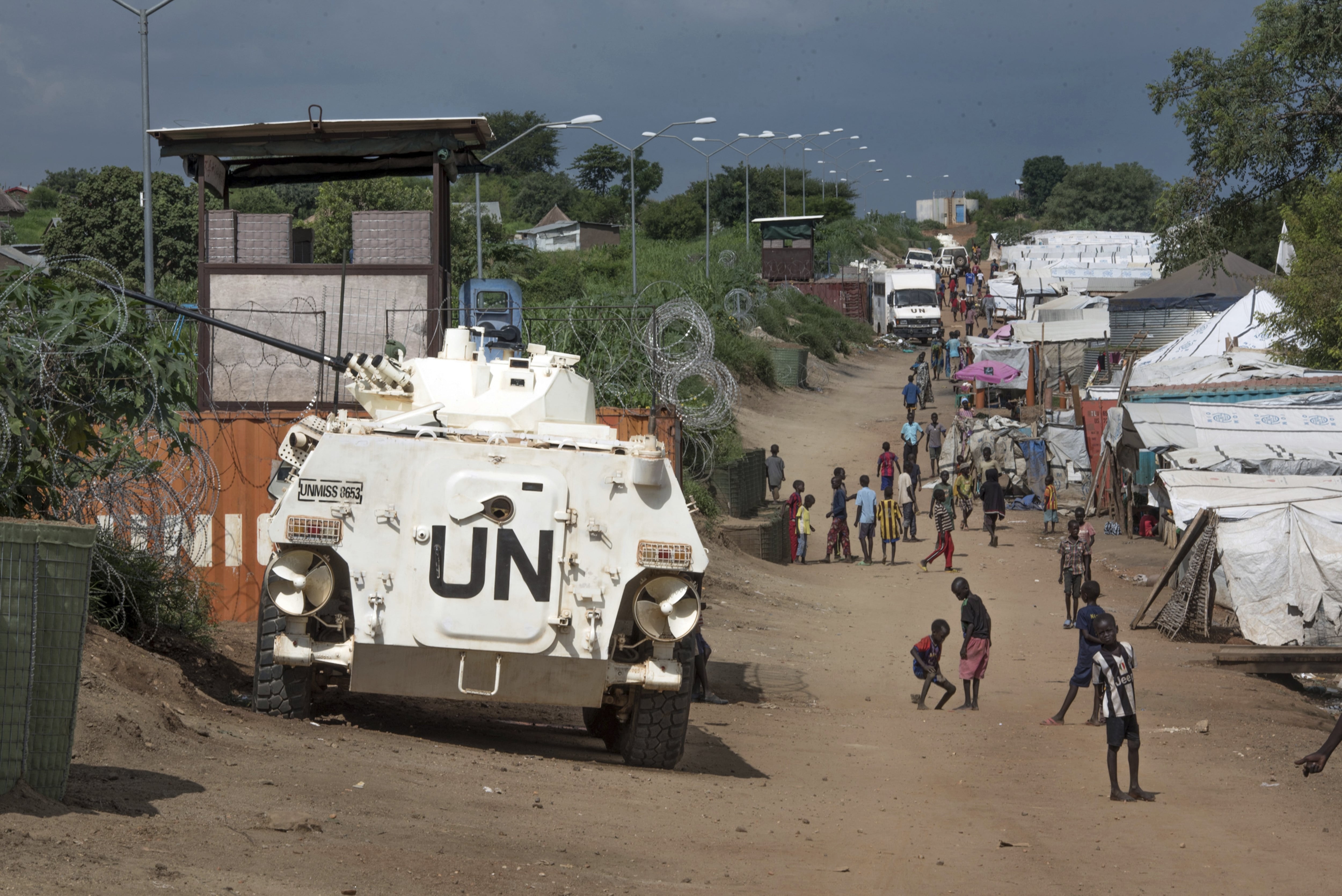Nearly 70 years after the United Nations first deployed its iconic blue helmets, demand for peacekeepers is on the rise.
In July, the United States teamed with India, the world's second-largest contributor to international peacekeeping forces, to train African military officers and expand its influence in developing nations. Experts say the partnership, a first in U.S.-Indo relations, will serve two purposes: to draw the U.S. closer to its most important Asian ally and expand upon a key tenet of Western foreign policy.
"Increasingly, the West sees peacekeeping missions as part of a portfolio of policies to provide its own security," said Jonathan Caverley, a research associate at the Massachusetts Institute of Technology. "It's not that the world is getting more violent, it's that the West considers more violent places as important to national security."
Video by Michelle Kim/Medill News Service
To launch the Indian partnership, an officer from the U.S. Marine Corps and two from the Army traveled to New Delhi for three weeks, working with 37 officers from Ghana, Tanzania, Rwanda, Uganda, Nigeria, Malawi, Zambia and Sierra Leone. Lt. Col. David McGurk, the U.S. Military Observer Group's chief of operations, said the course focused on UN history, command and control structures and peacekeeping legalities.
McGurk said the classroom-based lessons leveraged real-world scenarios. The work was aimed at preparing African officers to return home and train future peacekeepers and protect civilians caught up in the violence.
"We could send folks all around the globe, but when it comes to the African continent ... nobody knows their own fight better than themselves," McGurk said. "Might we solve all the problems doing this? No, but it's a win for us if we can at least stabilize" the continent.
McGurk said the African officers would return home better prepared to implement UN policies and defend their sovereignties.
Last year, the UN deployed more than 100,000 uniformed peacekeepers to African countries, twice as many as the decade before. The U.S. pays for more than a quarter of this mission's $7.87 billion budget, and recently the commanding general of U.S. Army Africa said he would continue growing partnerships and exercises across the vast continent.
"It's the land of tremendous opportunity, but the land of where, if the perfect storm brews, a lot of negative things could happen," Maj. Gen. Joseph Harrington told Defense News in October. "Ten years ago, Africans accounted for 20 percent of the peacekeepers on their own continent. Now, they make up more than 50 percent. A lot of these countries are building up their own capabilities and capacities."
Defense News video
AS THE MISSION GROWS, NEW FOCUS ON EDUCATION
The role of UN peacekeepers has evolved dramatically over the last seven decades. At the mission's inception, most peacekeepers came from mid-level powers like Canada, Norway and Finland. Today, the vast majority come from developing nations looking to capitalize on generous salaries and benefits paid to peacekeepers.
Additionally, the missions themselves have evolved from keeping peace to restoring it, a significant shift away from the original goal of "maintaining ceasefires." This requires peacekeepers to pick a side and remain active longer on the diplomatic end of a mission.
"We've shifted focus from peace implementation to protecting civilians in conflict," said Lise Morjé Howard, a government professor at Georgetown University. "Even states that have significant military and police capacity … can't protect all of their civilians."

Last year, the UN deployed more than 100,000 uniformed peacekeepers to African countries, twice as many as the decade before. (AP photo)
The peacekeeping effort has received its fair share of criticism, though. In October, UN peacekeepers in South Sudan were condemned for abandoning their posts and firing tear gas at civilians. The East African nation, plagued since December 2013 by civil war, hosts more than 12,000 blue helmets whose mission makes up about one-eighth of the total peacekeeping budget.
And this past summer — six years after a deadly cholera epidemic in Haiti killed thousands — the office of UN Secretary General Ban Ki-moon acknowledged the role of peacekeepers in introducing the disease.
Morjé Howard said the cholera epidemic and recent allegations of sexual abuse are a "serious problem." Lack of trust, she said, can undermine the mission's ability to succeed. It's "almost an existential crisis for peacekeeping," she added, "because if people don't trust the peacekeepers it's very hard to see how they can conclude the conflict."
Lt. Col. Anthony Walker, who helped lead the training mission in India, said the recent partnership represent a return to the "schoolhouse." Increased education around civilian protection and sexual exploitation should help curb such problems, he added.
He and Morjé Howard said peacekeeping nets out as a big positive, one which succeeds more often than not.
"Because the U.S. can't be the world's police, it's helpful to have a big world organization that helps states transition from ... the conditions that breed terrorism," Morjé Howard said, noting "there's a correlation between the presence of peacekeepers and a lot of good things."
